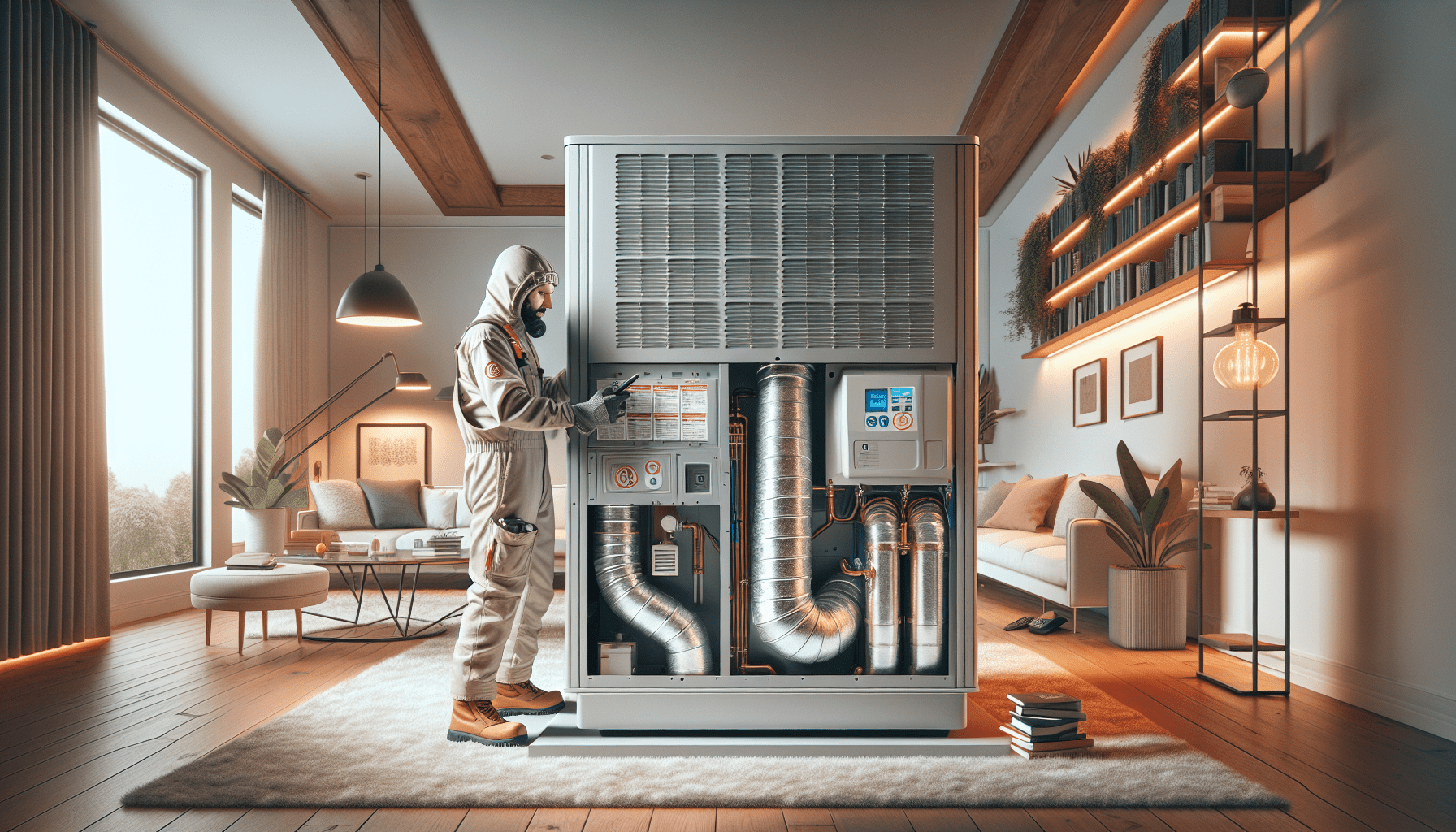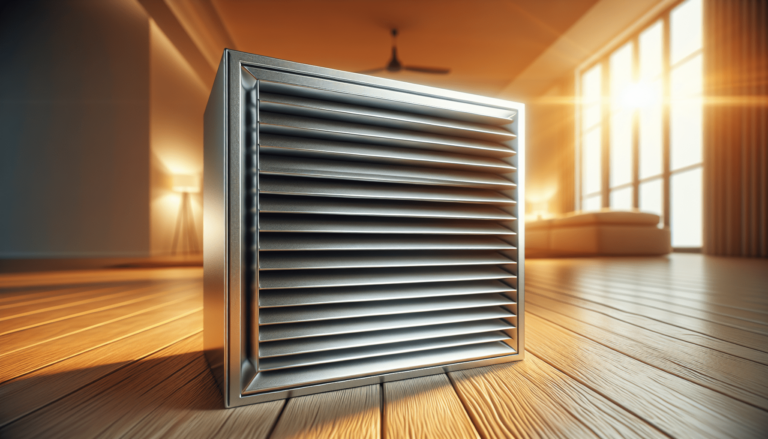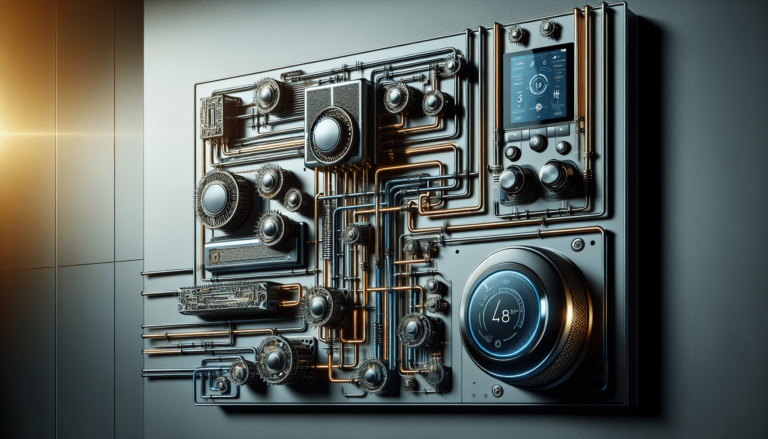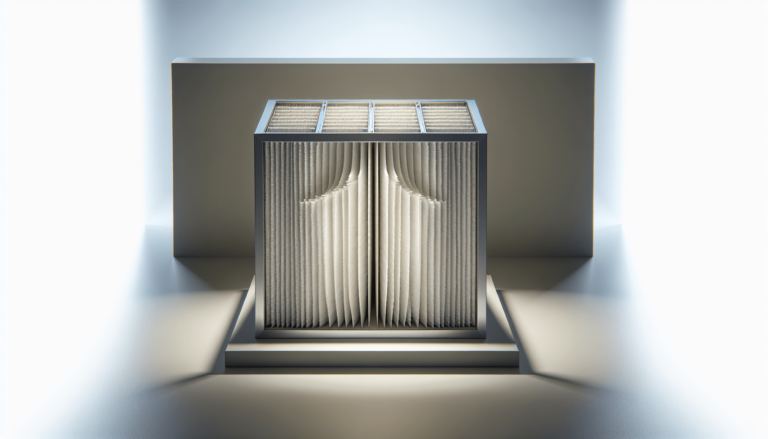

HVAC Services
Get Professional Repairs From The Area's Trusted HVAC Technicians. Ask About Our Services! We Offer Professional Heating & Cooling System Repairs And Guarantee Long-Lasting Results.
Got Question? Call us: (850) 678-2665Financing
Residential HVAC Safety Tips Every Homeowner Should Know
Master your home's HVAC system with essential safety tips. Learn maintenance, recognize signs of trouble, and protect your sanctuary. Say goodbye to unwanted surprises!

Have you ever wondered just how essential your residential HVAC system is to your home’s safety and comfort? It’s easy to take these systems for granted, but like most things in life, they require a bit of care and attention to function smoothly and safely. Understanding HVAC (Heating, Ventilation, and Air Conditioning) safety tips can go a long way in ensuring your home remains a safe and pleasant sanctuary, free from unwanted surprises.

Understanding Your HVAC System
Your HVAC system is a crucial aspect of your home’s infrastructure. It’s responsible for maintaining the temperature, air quality, and overall comfort level in your living space. However, it also involves some complex machinery and systems that, if not properly maintained, can cause significant issues.
Components of an HVAC System
Understanding what makes up your HVAC system is the first step. Here’s a quick rundown of the main components you’ll find:
| Component | Description |
|---|---|
| Furnace | Heats the air and circulates it throughout your home. |
| Air Conditioner | Cools the air and removes excess humidity. |
| Ductwork | Channels that distribute the heated or cooled air to various rooms in your home. |
| Thermostat | The control panel for your HVAC system. It helps regulate your home’s temperature. |
| Heat Pump | Transfers heat from one place to another, often used in both heating and cooling your home. |
Recognizing Signs of Trouble
Knowing what to look for can prevent minor issues from turning into significant problems. Pay attention to unusual noises, foul odors, fluctuating temperatures, and skyrocketing energy bills. These are often the first indicators that something is amiss.
Safety Tips for Every Homeowner
Arming yourself with knowledge about HVAC safety is not just about maintenance but also about ensuring the well-being of your household. Follow these tips and stay ahead of potential hazards.
Regular Maintenance
Regular maintenance may sound like a chore, but it is essential for the longevity and efficiency of your HVAC system. Create a routine checklist to ensure nothing gets overlooked.
Changing Air Filters
Changing air filters is one of the simplest and most effective ways to maintain your HVAC system. A clogged filter makes your system work harder, leading to potential failures and increasing energy consumption. Check and replace your filters every 1-3 months.
Cleaning the Vents and Ducts
Dirty vents and ducts can circulate dust and allergens throughout your home, affecting air quality. Make it a habit to clean these every few months to keep the air you breathe fresh and safe.
Annual Professional Inspections
Having a professional inspect your system annually can catch minor issues before they become significant problems. Technicians have specialized tools and training to diagnose and fix issues that the average homeowner might miss.
Thermostat Settings
Setting your thermostat correctly can save you money and prolong the life of your HVAC system. Avoid extreme temperature settings, and consider using programmable thermostats for better control.
Safety Devices
Install carbon monoxide detectors near your HVAC units. Leaks or malfunctions can lead to dangerous gas build-up. These detectors can alert you to any unsafe conditions.
Specific Considerations for Different Seasons
each season brings its challenges. Tailor your HVAC maintenance to the specific needs and conditions of the season to keep your system running smoothly all year round.
Spring and Summer Tips
- Check Coolant Levels: Low levels can reduce efficiency and risk damage.
- Inspect Exterior Units: Ensure they’re free from debris like leaves and grass.
- Test the Air Conditioner Early: Don’t wait until the first heatwave to find out your air conditioner isn’t working.
Fall and Winter Tips
- Clean the Furnace: Remove any dust and inspect for wear and tear.
- Check for Drafts: Improve your system’s efficiency by sealing any gaps in windows and doors.
- Heat Pump Inspection: Make sure the heat pump is functioning correctly if you use one for heating.
DIY vs. Professional Services
Not everything needs a professional’s touch, but some tasks should be left to the experts. Knowing the difference can save you time, money, and stress.
What You Can Do Yourself
- Change Air Filters: Simple and quick task.
- Clean Vents and Ducts: Requires basic tools and non-toxic cleaners.
- Check Thermostat Settings: Easy to adjust and monitor.
Tasks for Professionals
- Annual Inspections: Technicians can spot issues you might overlook.
- Complex Repairs: Avoid the risks involved with DIY repairs on critical components.
- System Installations: Ensure systems are installed correctly and safely.

Common HVAC Hazards and How to Prevent Them
Forewarned is forearmed. Understanding common hazards can help you take preventative measures to ensure your system’s safety and efficiency.
Electrical Issues
Electrical problems can range from simple wiring issues to more dangerous faults that could pose a fire risk. Always ensure your HVAC system is properly grounded and that wires are in good condition.
Gas Leaks
Gas leaks are hazardous and require immediate action. If you smell gas, turn off the system, evacuate your home, and call a professional for inspection and repair.
Refrigerant Leaks
Low refrigerant levels can cause your system to overheat or break down. They are also harmful to the environment and your health. Regular checks by a professional can identify and fix leaks.
Blocked or Clogged Vents
Blocked vents reduce system efficiency and can pose a fire risk. Ensure that nothing obstructs airflow in any of your vents.
Carbon Monoxide Poisoning
Carbon monoxide is a silent killer. Ensure that your heating elements are functioning correctly and invest in quality CO detectors to safeguard your home.
The Importance of Documentation
Keeping a record of your HVAC maintenance and repairs can be incredibly beneficial. It can help you track the health of your system and provide valuable information to technicians if issues arise.
Maintenance Logs
Record the date and details of any maintenance activities. Whether it’s changing the filter or a professional inspection, keeping a log helps you stay on top of your HVAC health.
Warranty Information
Understanding what your warranty covers can save you significant money if repairs or replacements are needed. Always keep your warranty documents in a safe and accessible place.
Service History
Have a record of all professional services performed on your system. This history can help diagnose recurring issues and guide future maintenance decisions.
Energy Efficiency Tips
Energy efficiency doesn’t just help your wallet; it’s also a critical factor in maintaining a safe and effective HVAC system.
Insulation Checks
Good insulation keeps your home cooler in the summer and warmer in the winter. Ensure your attic, windows, and doors are well-insulated to reduce the strain on your HVAC system.
Use Ceiling Fans
Ceiling fans can help distribute air more evenly throughout your home, reducing the demand on your HVAC system and cutting down on energy costs.
Programmable Thermostats
These devices allow you to set temperatures according to your schedule, ensuring that your system isn’t working harder than it needs to when you’re not home.
Regular System Upgrades
Modern HVAC systems are much more efficient than older models. Consider upgrading if your system is more than 10-15 years old.
Final Thoughts
Taking care of your HVAC system is not just about comfort but also about safety and efficiency. By following these tips and making a routine of essential maintenance tasks, you can ensure your home remains a haven of comfort all year round.
If you have any specific questions or need professional HVAC services, consider reaching out to Tempacure Heating and Air Conditioning. They have the expertise and customer service to help you maintain a safe and efficient HVAC system.
Tempacure Heating and Air Conditioning
325 Cedar Ave S
Suite B
Niceville, FL 32578
(850) 678-2665
Tempacure HVAC
Remember, a little maintenance can go a long way in ensuring that your HVAC system runs efficiently, keeps your home comfortable, and remains safe for you and your loved ones.







